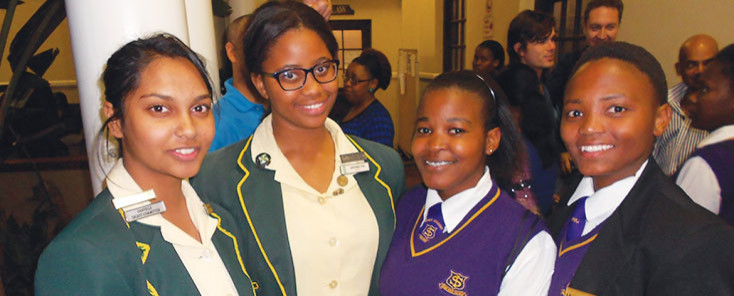Mother Tongue: South African University To Make Zulu Language Compulsory For All Students

A prominent university in South Africa will make learning the Zulu language compulsory for all incoming students starting next year, the first time the country’s higher education sector has ever made such a move to impose the teaching of an indigenous African language.
The University of KwaZulu-Natal in Durban called the measure a “watershed” moment in its history, requiring students to be at least bilingual in order to obtain their degrees, regardless of their field of study.
UKZN explained that the decision would encourage “social cohesion” and promote "nation-building and [bring] diverse languages together" in a country still divided by race and culture.
“At a university where more than 60 percent of students are Zulu-speaking, the institution has an obligation to ensure linguistic choices result in effective learning solutions. … Language should serve to bring diverse learning communities together and promote social cohesion,” UKZN Deputy Vice Chancellor Professor Renuka Vithal said in a statement.
"You can come through the schooling system without learning any of the indigenous African languages,” Vithal told BBC.
"It is surprising that this is still the case, nearly 20 years after apartheid ended."
She added that since Zulu is the most widely spoken language in the country (based on results of the 2011 Census), it makes sense for all South Africans to learn the tongue. On average, almost half (48 percent) of first-year students enrolled at UKSN speak Zulu at home.
In the province of KwaZulu-Natal, about 80 percent of the people speak Zulu, Agence France Presse noted.
South Africa’s Mercury newspaper quoted Professor Leon de Stadler, the director of the Stellenbosch University’s Language Centre, who said that multilingualism is essential in a truly democratic society. But he did not endorse making learning Zulu compulsory.
“It is not always practical or affordable but, even worse, it can create a lot of negative attitude regarding language promotion and language teaching,” he said.
Similarly, Frans Cronje, deputy head of the South African Institute of Race Relations, said UKZN’s decision raised the risk of alienating non-Zulu speakers, and that such courses should be voluntary, not mandatory.
South Africa has eleven official languages, including English, Afrikaans, Zulu and eight other indigenous languages. About one-fourth (24 percent) of the country’s population speaks Zulu as their mother tongue (including President Jacob Zuma), although many other black people also use it.
However, minorities like whites and Asians generally do not speak nor understand Zulu.
Until apartheid ended in 1994, South Africa had only two official languages: English and Afrikaans.
But while English ranks only fifth in terms of languages spoken in South African homes (about 8.2 percent), it still dominates the country’s commerce, politics and media, according to Safarinow.com
© Copyright IBTimes 2024. All rights reserved.





















